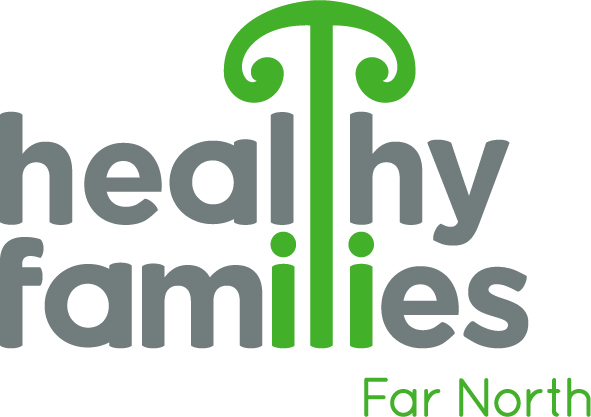Healthy Families Far North embraced te tau hou Māori and got straight to work, getting actively involved in supporting and hosting various kaupapa across the motu.
Curious about what we’ve been up to? Here’s a glimpse of the initiatives we’ll keep developing into the new year.
Embracing the shift: Redefining roles in hauora and prevention

Photo left to right: Robin – FNDC Parks & Reserves Planner, (Kawakawa/Moerewa Subdivision) Roddy – Bay of Islands Community Board Member, Amorangi - Rangatahi Innovator & Will – FNDC Communications & Engagement Advisor.
In recent months, we've witnessed a shift in how some organisations, especially our local council, view their role in the prevention of chronic illnesses and wellbeing. This growth is reflected in various projects and prototypes, signaling a broader recognition of the importance of prevention.
Our team utilise Hautu Waka, a navigational practice. This framework is our compass for charting the intricate pathways of our projects, and allows us to capture and track the progress and shifts within each kaupapa. Hautu Waka helps us make sense of complexity, guiding us with insight and clarity. Here, we briefly outline the ‘tohu’ or signs we’re seeing across our kaupapa, which help us grasp shifts and changes and provides clarity on our direction.
Tohu tahi: We’re seeing a newfound openness from system partners towards integrating kai in public spaces—a significant shift from the previous reluctance driven by a number of concerns. Local councils are key in reimagining how kai can be woven into public spaces, fostering opportunities for community nourishment and connection. By making kai more accessible and visible, they transform public areas into vibrant hubs where whānau can truly thrive.
Tohu rua: There’s a noticeable pivot in resource allocation towards hauora from beyond traditional health system partners. Our work with Waitangi National Trust and FNDC shows a shift from venue-based events to creating environments and experiences that give whānau access to healthy kai and wai, promoting a supportive setting for long-term health.
Tohu toru: Mobilising community and system partners for collective action has been crucial. In response to the Northland Regional Sporting Facilities Rate Proposal, we co-created a “submission postcard” and a “one-pager” to make it easier for community members and system partners to gather and submit feedback. These tools were designed to be straightforward and user-friendly, ensuring whānau could easily understand and complete them.
This approach contributed to an unprecedented level of community engagement, showcasing the value of making participation in decision-making both accessible and meaningful. NRC Chair Crawford’s recognition underscores the significance of investing in whānau health through sports and infrastructure, reinforcing the crucial role our system partners play in hauora prevention.
These tohu highlight the impact of changing perspectives and reallocating resources, showcasing the crucial role of community-driven efforts in preventing chronic illnesses.
